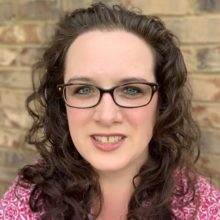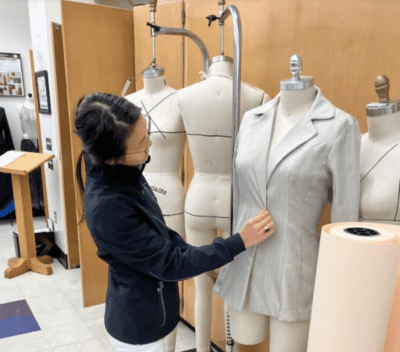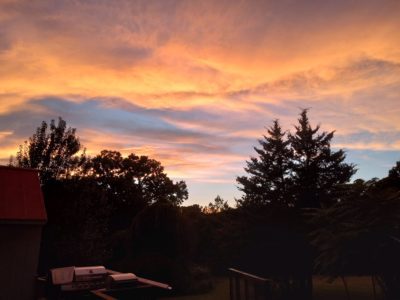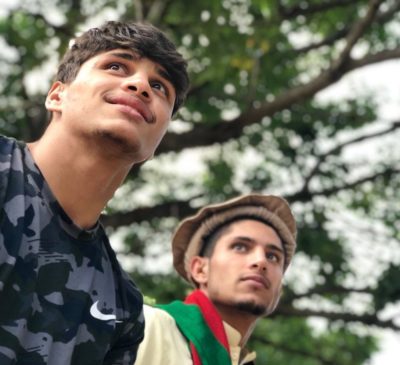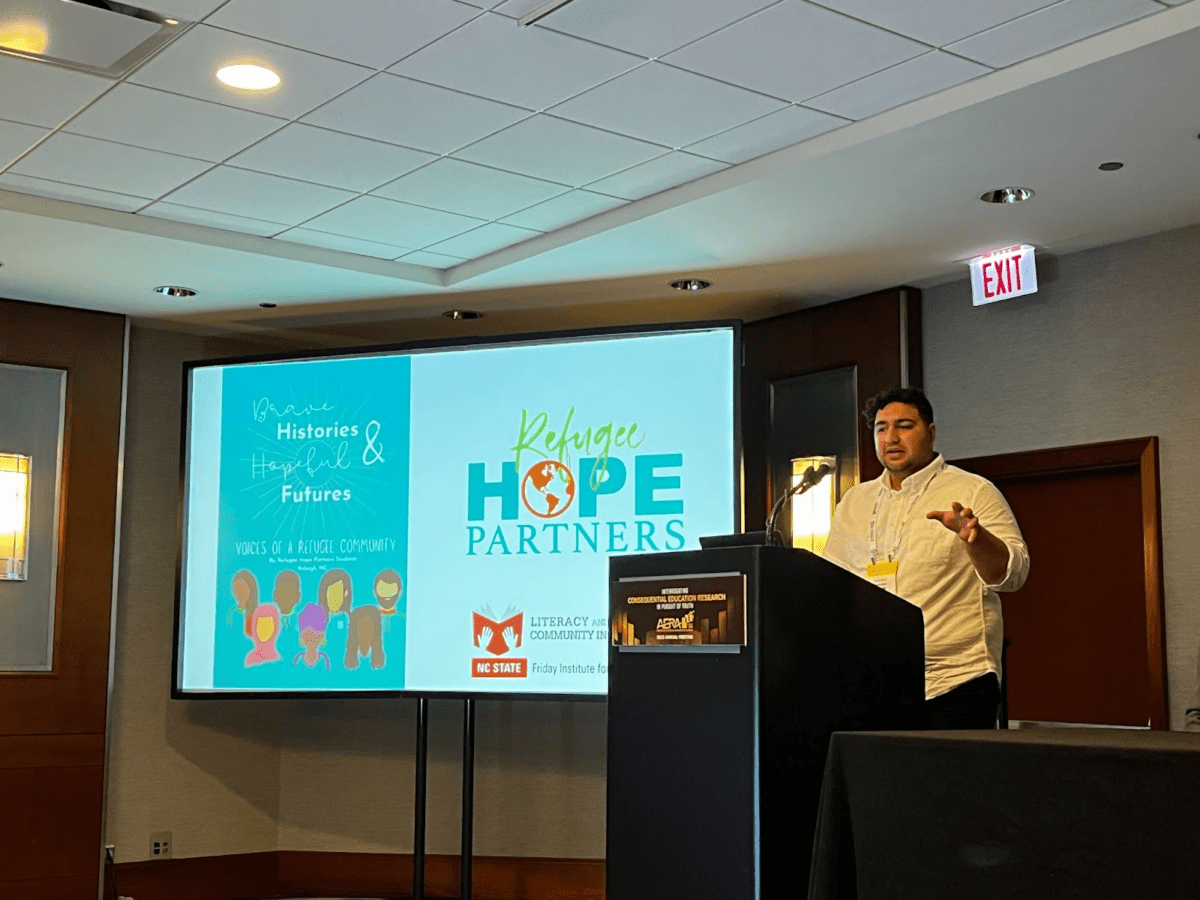

|
|
I recently returned from the American Educational Research Association (AERA) conference, which is the largest education research conference in the world, hosting around 15,000 educators and researchers from across the globe. Yearly we all gather to learn by attending various sessions focused on different educational topics. Essentially, 15,000 people show up to talk about issues that impact youth — but usually without the opportunity to hear directly from any actual youth.
This year, one of our own North Carolinian youth, Hamed Abdul Qadir, was invited by the President of AERA, Dr. Rich Milner, and the globally renowned scholar Dr. Lin Goodwin, to participate in a session called “Next-Generation Solutions: International Youth Forum on Emerging Initiatives and Potential Impacts” and provided him an all expense paid trip to Chicago to participate. During this session, Hamed and I, along with Dr. Crystal Chen Lee, gave a presentation entitled Writing to Advocate for Hopeful Futures.
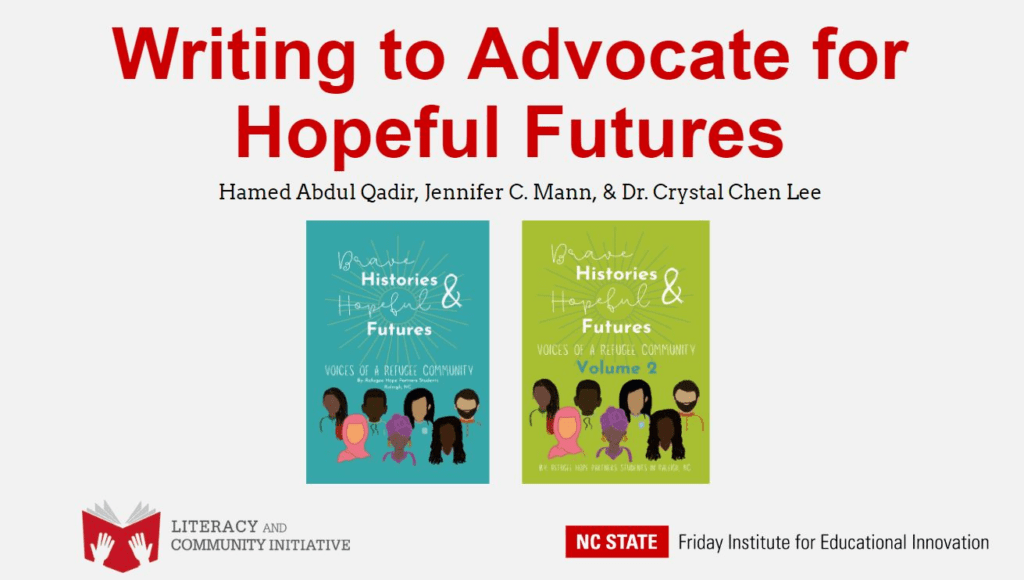

Hamed is a youth participant in Raleigh-based Refugee Hope Partners, a local nonprofit which helps with resettlement, education, and wellness for over 1,300 refugees from 49 countries. Hamed’s family left Afghanistan more than a decade ago and temporarily lived in Tajikistan before being permanently resettled in North Carolina. At the AERA session, Hamed shared his experience writing and publishing a book with North Carolina State University’s Literacy and Community Initiative, which partners with local community-based organizations serving historically marginalized communities to write, engage, and lead.
Hamed told the room of educators and researchers, “It’s important to use our voices to speak up about issues, especially ones that relate to human rights.” He read from the book he helped write — Brave Histories & Hopeful Futures: Voices of a Refugee Community. In it, Hamed wrote a letter to the United Nations asking them to take action on climate change because, “Global warming affects everyone around the world, but it will impact poorer countries first.” He explained to everyone that it is the richer countries doing the greatest environmental damage and the poorer countries which pay the steepest price for it.
As Hamed’s former English teacher, I have been thinking a lot about how we talk to and about youth, without really listening to them and their concerns. Too often we assume their experiences, their concerns, and their needs, then act upon those assumptions. Instead, we should spend more time hearing from youth about what it is they’ve seen, done, thought, wondered, and worried about. We should also listen to their proposed solutions, because young people like Hamed are brilliant and deserve to be heard and heeded. Hamed and his peers addressed many complex advocacy issues in their books. These issues are included in the image below, which shows one of the slides we used in our presentation at AERA.
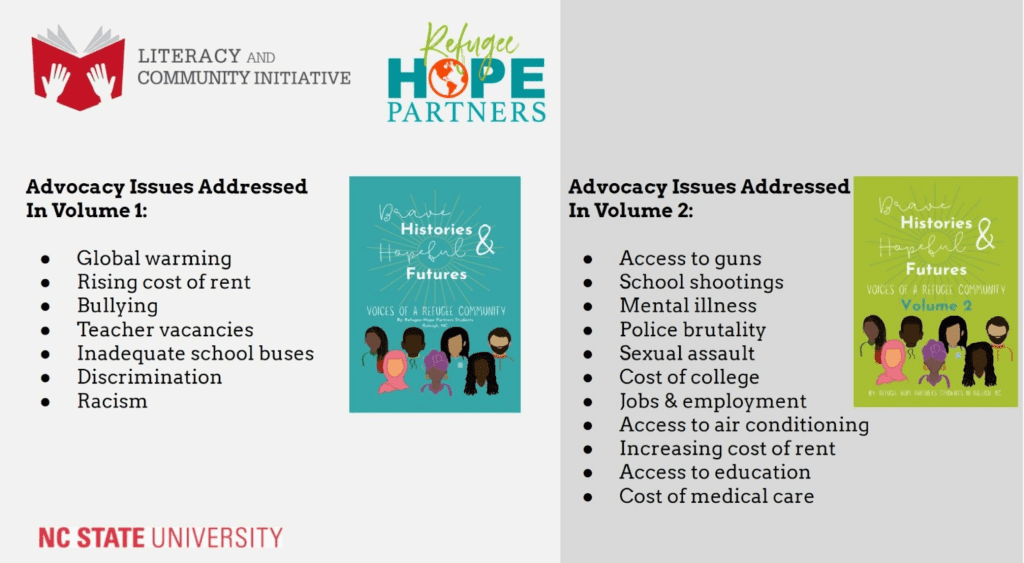

This experience will forever serve as a reminder to me that even those of us — perhaps especially those of us — who research educational issues and present findings to the greater academic community need to spend more time listening to the stories of young people. Their lived experiences hold valuable life lessons and insights. It is only when youth are included in discussions with educators and scholars that we will begin to find solutions to the myriad of educational issues we face daily.
Making space and providing platforms to young people at conferences and in professional development workshops is an excellent way to begin this cultural shift. This shift requires positioning youth as possessing a wealth of knowledge, particularly regarding their own lives and their own education. Looking at Hamed on that stage, I can assure you that today’s young people possess tremendous wisdom and hold incredible potential solutions. If we will listen, we may perhaps begin to create a more hopeful future for us all.
